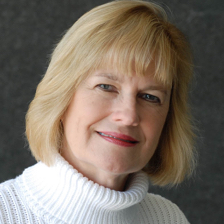Oct. 7, 2014
Q&A with journalism school alumna, author Nancy Stancill
Sindhu Chidambaram in The Daily Tar Heel
http://www.dailytarheel.com/article/2014/10/qa-with-journalism-school-alumna-author-nancy-stancill
Author Nancy Stancill graduated from the School of Journalism and Mass Communication in 1971. She wrote for The Daily Tar Heel before graduating, then moved to the Houston Chronicle for 15 years and then the Charlotte Observer for 16 years. She now lives in Charlotte and works as a full-time writer.
Staff writer Sindhu Chidambaram spoke with Stancill about her writing career, her time at UNC and her latest project.
The Daily Tar Heel: Can you tell me about “Saving Texas”?
Nancy Stancill: I had this idea — Rick Perry, the governor of Texas, had been saying things, kind of outrageous things, about secession, and I think he made some comments to the effect that ‘we don’t like what the feds are doing, well, we could always leave,’ because Texas was an independent republic for 10 years before it entered the Union as a state. Texas was always sort of an independent spirit. So anyway, when Rick Perry said that it got me to thinking, ‘Well, what if? What if there were people that were in political circles that wanted to make Texas a republic again?’ And that’s the basis of my story.
DTH: What should readers expect and look forward to in the book?
NS: Well, I think they can look forward to a genuine tale of journalism and a pretty good thriller with several murders and a lot of suspense.
DTH: What parts of the plot were based on your personal experiences?
NS: One experience I had was I had to interview these two people that were the head of the college, and they didn’t like the questions I was asking so they just got up and walked out, and I walked out following them down the hall asking questions. And that was a true experience.
DTH: How far do you want to take this story?
NS: I originally thought I would make this a trilogy, and I still might do that, but I haven’t quite decided yet. I’m kind of in the middle of writing this sequel, and I think I’ll decide as I finish the book whether I want to go any further with this character.
DTH: Did you face any challenges in the writing process?
NS: I think all writers face the challenge of actually sitting down and doing it. That’s kind of the biggest challenge of writing. But there were also challenges of style. When you’re a journalist for 30-plus years the way I was, you write in a very journalistic style — very scarce sentences, very few adjectives. You stick to the facts, you try not to embellish your style too much. But when you’re writing fiction, you have to learn to write much more sweeping sentences.
DTH: How did your time at UNC shape your writing career?
NS: Working on The (Daily) Tar Heel was exciting. To be given a daily assignment and to know that I had to somehow get it done that day. That really helped me as a writer — a lot — and it also showed me the fun of newspaper work.
DTH: Looking back, what was the most meaningful thing you did during your time at UNC?
NS: I loved it all, actually. I can’t think of anything I didn’t love. I think being at university means so much to a person who comes from a small town because it’s the first time they’ve ever felt really free and have the kind of opportunities to meet people and to really pace life.
DTH: What advice do you have for aspiring writers at UNC?
NS: I would say just to write as much as you can and write as many different kinds of things that you can — write short stories, write newspaper stories, write poetry, keep a journal. I think the more you write, the better you get and the more you enjoy it. If you think you have a novel in you, just start writing pieces of it.
